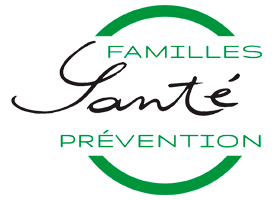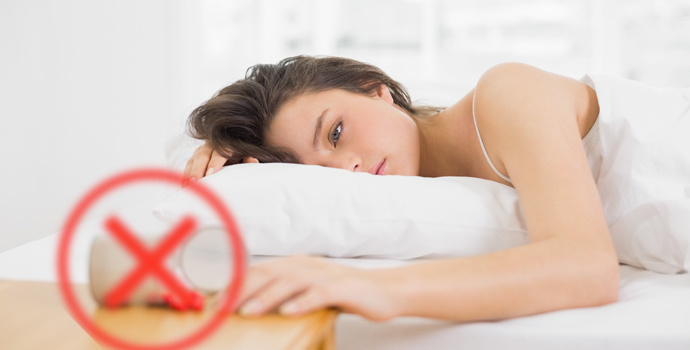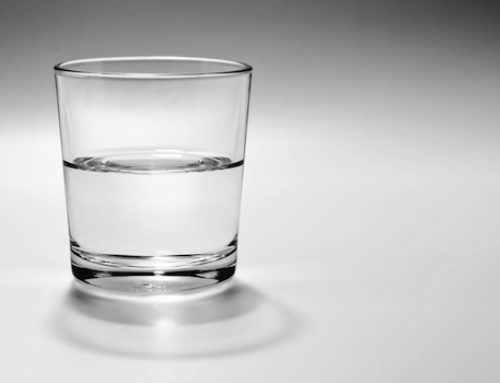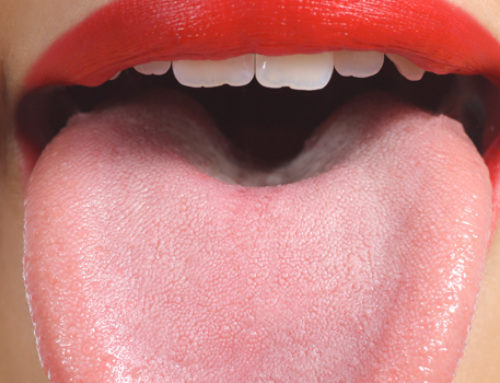Letter No 8 of the Professor Henri Joyeux – 6th of May 2014
“I firmly believe that if the whole materia medica, as now used, could be sunk to the bottom of the sea, it would be all the better for mankind — and all the worse for the fishes.”
Dr Oliver Wendell Holmes, Currents and Counter-Currents in Medical Science, An Address delivered before the Massachusetts Medical Society, Annual Meeting, May 30, 1860.
The Sleep of the Elderly in Question
What person having reached a certain age does not wonder about this? Paradoxically, the danger lies in asking one’s medical doctor or pharmacist. They have everything you need: sleep aids in sticks, anxiolytics, antidepressants, all adapted to different causes they usually assess too fast. The French are the first world consumers of sleep aids. They use 3 to 5 times more of them than other Europeans. Consumption is very high among the elderly. They are told over and over again that it is critical to sleep well. Consequently, they cannot bear not to fall asleep rapidly, and to wake up several times per night.
Still, according the French High Authority on Health (HAS) :
“Getting old goes along with a physiological evolutionary process that affects our physiological clock and the quality of our sleep. An elderly person sleeps less at night. Her sleep is fractionated, and sometimes necessitates one or more naps during the day. Therefore, sleep is spread out differently throughout a 24 hour day. For many persons, that fact triggers a feeling of “having slept badly”. This feeling makes them complain of insomnia, although it is not really insomnia.”
Today, in France, more than a third of the population of 65 and over, i.e. 3.5 million, and 40% of the population of 85 years and up take sleeping pills regularly. However more than half of these treatments aren’t useful, because insomnia is rare among this population.
Beware of The Overconsumption of Sleeping Aids
First and foremost, know that some sleeping pills (and we do not know exactly which ones) can increase risks of early death. They make people sleep too deeply! And this is no joke. Is the aid’s molecule responsible for death during sleep, or is it the diseases that triggers insomnia that is to blame for death?
An American study published in the British Medical Journal Open reports that hypnotics would induce an increase of mortality rates. Even when taken very occasionally, they would increase the risks of early death and also the risks to contract cancers. Dr Daniel Kripke and his colleagues have studied 10 500 volunteers, aged 54 on average, whom they monitored for 2 and a half years. During this time, they had to use – regularly or occasionally – one or more hypnotic medication: benzodiazepines [1] or derived medications such as Zolpidem, Eszopiclone or Zalephlon, but also barbiturates [2] or antihistaminic sedatives that are used in allergies. As you can see, there is a wide diversity of sleep medications on the market…
This patient group was compared to a second group composed of 23.500 subjects taking no sleep aid. These volunteers displayed the same characteristics with regard to age, gender and life hygiene than the test population. Their health, weight, and ethnic background was also considered. The only difference between these two groups was their consumption of hypnotic drugs.
The results were enlightening: “From a consumption of 18 pills over a year, the risks of early death multiply by 3.5.” This risk would increase with the consumed quantity. Between 18 and 132 pills per year, the death risks would multiply by 4, even 5 beyond this number. Consumers of hypnotics in high doses would increase their risks of contracting cancers – of all types – increased by 35%.
My excellent neurologist colleague and director of the Sleep Laboratory of the University Hospital of Montpellier, Professor Yves Dauvilliers, remains cautious. He regrets that “authors do not specify the underlying pathology that led patients to take treatment: primary insomnia, insomnia with depression, insomnia with anxiety… What of the somnolence associated with it? Such elements are critical to determine the respective responsibility of each drug for the health of patients.” Thus, we still need to determine what caused the death of all these patients that were exposed to hypnotic drugs!
To him, these results “provide an additional argument in favor of reassessing the risk/benefit ratio of these molecules in the treatment of chronic sleep problems.”
The above-mentioned HAS studied troubles and complaints surrounding sleep because “they are usually a warning sign of other pathologies that should not be missed and necessitate specific care: night pains, urinary problems, sleep apnea, periodic leg movement in sleep, depression.”
When faced with sleep disorders, the HAS recommends to search for causes in order to give a diagnosis of insomnia or not: sleep agenda, sleep questionnaire, recommendation on care for adult sleep disorders.
How to Naturally Decrease or Stop Sleeping Pills Consumption la consommation de somnifères ?
This help consists in helping the patient decrease or discontinue his use of sleeping pills. Sleeing pills are too liberally prescribed. Nevertheless, their consumption should not be discontinued at once. Moreover, a decrease should be associated with nutritional changes, such as eating less in the evenings, avoiding red meat (steak and charcuteries, including smoked hams) which makes digestion more difficult and slows down the process of falling asleep.
A good soup with lightly cooked vegetables, lettuce dressed with extra virgin olive oil, accompanied with a little piece of goat or sheep cheese, one well-chewed fresh seasonal fruit, and, let’s not forget, one glass of good ORGANIC wine, low in sulfite content.
Beware When Men’s Breasts Start Growing
I have had to treat some men with gynecomastia (abnormal formation of a little breast), three of which had a cancerous shape.
In such cases, close questioning concludes that the patient has been taking hypnotics, while perhaps being a smoker. Indeed, all medication treating sleep, anxiety or depression induce hyperprolactinemia. This means that they stimulate the pituitary gland, the main hormonal gland at the base of our brain, into secreting excess prolactin.
Prolactin is the lactation hormone that women’s bodies secrete after giving birth and delivering the placenta. This hyperprolactinemia plays the role of a growth factor at the level of one or both breasts of men, and builds up a readily palpable little mammary gland – esthetically disturbing as the man is wondering what is happening – and visible with a mammogram. At first benign, this gland can degenerate into a breast cancer for men. 500 new cases of such cancers are discovered every year in France. Facing such anomaly, suddenly stopping the intake of sleep aids – which most of the time has never been previously recommanded and explained to the patient – will not disturb sleep at all. [3]
Three Plants to Sleep Better
Evidently, in the evenings, better avoid stimulants such coffee, tea, hard alcohol as well as TV shows that slow down the body’s and eye’s relaxing process. Don’t hesitate to use plants!
I would like to introduce three plants known that help cure insomnia: hawthorn, linden and valerian.
- Hawthorn, to relax your body: Already used in Ancient Greece, hawthorn is recommended everywhere in Germany as a body relaxant. It contains flavonoids and procyanidins which act as antioxidants and regularize the heart rate. It’s the conclusion of the Cochrane group, which summed up clinical studies accomplished on thousands of subjects that were healed by Hawthorn. [4] Hawthorn helps you to relax by soothing your heart – especially if you have high blood pressure. Your heart rhythm slows down, your breathing slows down. Your body rests, which helps you fall asleep.
- Linden, as sedative: Linden flowers have always been used in herbal teas against nervous fatigue and insomnia. Once upon a time, people prescribed a linden-flower-infused bath to overexcited kids so as to calm them before sleep. Linden, like hawthorn, acts on the heart by hindering hypercoagulation of the blood and the narrowing of arteries.
- Valerian improves the quality of your sleep: Valerian is sought out for its roots. Many studies have demonstrated the effects of valerian on the central nervous system: it is a relaxant, sedative and spasmolytic – i.e. it acts against muscular spasms. Valerian reduces the time it takes to fall asleep and improves sleep quality. This was demonstrated in a study controlled by placebo [5]. Subjects using valerian reported falling asleep faster and their recorded brain waves confirmed that valerian had improved their sleep patterns. It is necessary to take valerian for 2 to 3 weeks before feeling its effects.
If you are looking for other plants efficient against insomnia, I recommend trying chamomile and hops.
Two Original and Pleasant Advices for Falling Asleep
Here are two original and pleasant advices for falling asleep:
Hive Products: Efficient, Safe and Delicious
A half hour before bed time, take a little raw honey and put in under your tongue, without swallowing it. The absorption occurs under the tongue. The fructose of honey (especially acacia or chestnut tree honey) induces the production of saliva which liquefies the honey, which slowly goes down the esophagus. No risks of getting a tooth cavity that way.
Trace elements such as zinc, copper, lithium and specially tryptophan are absorbed under the tongue. tryptophan is an essential amino acid that the body cannot produce and that one can find in little quantities in raw honey. It assists the formation of a neurotransmitter, serotonin, then melatonin, which help relaxing and falling asleep. No need of tryptophan or melatonin medication.
Moreover, if you take royal jelly in the morning as stimulant, it will also act at night thanks to tryptophan. I explained the health advantages of all these hive products in a book, Les Abeilles et le chirurgien (or “Bees and the Surgeon”, 2nd edition, Paris, Le Rocher 2014).
A Few Squares of Omégachoco Between the Gum and the Cheek
Omegachoco is a chocolate brand I already recommended on the topic of Alzheimer’s prevention. It combines 70% organic cocoa and omega 3 contained in flax seeds. People suffering from insomnia can find assistance in finding sleep by eating 4 to 6 little squares of Omegachoco at night, one hour before bed.
Il existe en effet une relation positive entre le taux de sérotonine et le taux d’acides gras essentiels, les oméga-3. Les acides gras oméga-3 réduisent la production de certaines substances par l’organisme, comme les prostaglandines. En excès, ces dernières contribuent au vieillissement des neurones et nuisent à la transmission des messagers chimiques du cerveau. Cela peut évidemment perturber le sommeil.
There exists a positive relationship between the serotonin rate and essential fatty acids Omega 3. Omega 3 fatty acids reduce the production of certain substances in our body, such as prostaglandin. If present in excess, prostaglandin contributes to the aging of our neurons and hinder the transmission of chemical messages to the brain. This in turn could disturb sleep.
Note that in order to maximize the effect of Omega 3 on our body, one should also avoid excess in Omega 6, saturated fatty acids and trans fat. So, do not forget to put at least one square of Omegachoco one hour before sleep between your gum and your cheek. You will slowly fall asleep, your Castle of Flavors enjoying the following 7 molecules that are contained in this chocolate on top of Omega 3
- Theobromine, which is euphoria-inducing;
- Theophylline, a breathing assistant;
- Serotonin, sleep and wellbeing neurotransmitter;
- Phenylethylamine and Tyramine that will stimulate your brain’s cerebral activity of dreams;
- Salsolinol, an antidepressant;
- Anandamide, which in Sanskrit means “beatitude”.[6]
Wishing you good nights and a good rest !
Pr Henri Joyeux
Sources
[1] Benzodiazepines (Lexomil, Valium, Xanax, Noctamide, etc…) and some anti-histaminiques (Atarax), or some neuroleptics (Acepromazine in Noctran or Mépromizine, Theralene…). “new sleeping aids” (Imovane, Stilnox, Ivadal and generics) have not brought breathtaking improvements when it comes to tolerance, addiction or adverse effects compared to older treatments.
[2] French writer Marcel Proust (1871-1922) already in his youth consumed barbiturics: Trional, discovered in 1890, was is habitual sleeping pill until 1910. From his father Dr Adrien Proust’s library, Proust had gathered a wealth of medical knowledge, especially on neurophysiology of sleep. He was observing on himself its effects compared to different hypnotics he was also using. Veronal is another barbituric that was introduced on the German market in 1903, and which he started consuming from 1910 and abused once he stopped Trional. Barbiturics were responsible for many deaths. A deadly overdose can be reached by eating only 5 single doses.
[3] See our book : Prévenir le cancer du sein – savoir relever le défi ! ( or “How to Prevent Breast Cancer : Taking up the Challenge!” Paris, FX de Guibert, 2001.
[4] Hawthorn extract for treating chronic heart failure. Pittler MH, Guo R, Ernst E. Cochrane Database Syst Rev. 2008 Jan 23;(1):CD005312. Review.
[5] Donath F, “Critical evaluation of the effect of valerian extract on sleep structure and sleep quality”. Pharmacopsychiatry. 2000 Mar;33(2):47-53.
[6] See Le Chocolat et le chirurgien (or “Chocolate and the Surgeon”), Paris, Le Rocher, 2013.
La Lettre du Professeur Joyeux is an independent and free information service est un service. It specializes providing the wider public and families with disease prevention information. Click here to subscribe to the letter.
This health advice is provided free of charge by this organization and cannot be considered as personal medical advice. No treatment should be initiated solely on the basis of this content. It is strongly advised to consult a properly licensed health professional to seek responses with regard to one’s health and well-being. No information or product mentioned on this website is meant to diagnose, treat, atone or cure a disease.
You have a Personal Health Question ? ( Confidential response) or you wish to enjoy our exclusive services?
Become an exclusive member of our association for one year by clicking HERE.




